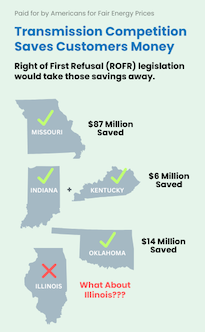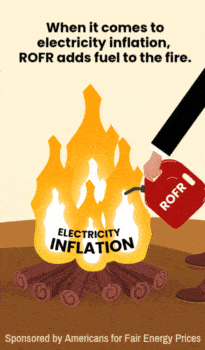* Chicago Mayor Brandon Johnson held a press availability this morning…
Reporter: On the transit bill. It seems it’s possible that they try to tackle the structure and governance part and not revenue. Do you think that’s acceptable to do one without the other at this time, or does the revenue need to come in May?
Johnson: Let me just say that I’m grateful for the productive work that is being done in Springfield. As I’ve said before, our equitable distribution and fair share of resources for Chicago in the region, that’s my number one priority, particularly at a time in which we’re already seeing the benefits of our investments right where wholesale occupancy is up, tourism is up. The ridership is up. 300 million riders last year alone. So we know that there is a growing need for reliable and affordable public transportation. As far as the parsing out of action, that is typical of Springfield. My position is we have to do both, right and, our team has worked hard to ensure that the governing structure is situated properly for the future. And the resources, that’s where we really have to roll up our sleeves and dig in a little bit more to ensure that that equitable distribution comes to fruition. But all in all, sometimes it it’s more manageable to parse elements of something of this magnitude apart. And I don’t necessarily have any grudge towards that effort.
Reporter: The agencies themselves have said they need the revenue to avoid cuts. They would have to schedule, I guess, a series of meetings that they’re required to schedule to talk about cuts before they actually implement them. Is there time to bring in that revenue on their timeline if they don’t do it this week?
Johnson: There is some urgency to respond to the financial needs that exist today. As far as the timing is concerned, look, as I said, there’s clearly a growing appreciation and confidence in our public transit system. There’s more work to be done, but as ridership continues to go up, as well as tourism continue to improve. We were talking about $20 billion of infusion as a result of tourism. We’re going to have to have a fully funded, well supported transit system, safe, affordable and reliable. And again, there’s no secret that we have to move with some expediency to ensure that the funding is there. Again, the timing of it all, probably some room there, not very much though.
It’s a big lift to do both this week. We’ll see.
* Other topics…
Reporter: Continuing the Springfield theme, when you went down there, you talked about kind of four lower level asks, your priorities asking out of Springfield. I’m wondering, have you gotten any assurances from your team down there, or lawmakers? You know that things like the mandated categories for schools, the 911 surcharge, telecommunication tax, you know better than I do. Are you getting any, you know, confirmation that what you need is going to come through in this budget with only a couple days left in the session?
Johnson: Well, there’s still work to be done, right? What I will say is, as we take nothing for granted, as you know, and as you’ve covered over the years, these last few days become, you know, paramount. Our team is working hard to make sure that, as you mentioned the categoricals, for instance, for special education, for transportation, bilingual education, that those reimbursements don’t drop below what we’ve had in the past. We actually believe that there should be some increase there. There’s nothing that’s guaranteed, and our work continues there to ensure that they ask that we have for the people of Chicago that those tasks become realized. Now, there’s always room to negotiate, and there’s different forms in which these asks can be delivered, but we’ll continue to work through that process to ensure that those investments reach Chicago.
Reporter: I’m hearing from one of the lawmakers who’s key, involved with the budgeting, who describes your team’s presence down presence down there as virtually being absent. Now, can you respond to that?
Johnson: We’re there. We’re there.
* Bears…
Reporter: Let’s shift to the Bears, your favorite topic. So we’re kind of closing time in Springfield. We know that they’ve been in active talks about getting some kind of funding for a new stadium with lawmakers there. Is the city engaged in any conversation with lawmakers during this last week to try to maintain, keep them here in Chicago?
Johnson: The door is still open for the Bears to remain in the city of Chicago. I’ve expressed my commitment and our team has put forth terms that we believe are fair and are attractive. Obviously at this point, I’ve done everything that I possibly could do to ensure my commitment to the Bears in our city. And they need support from Springfield. I mean, that’s really what it comes down to. Those conversations have always been led by the Bears. Because just like the Bears had to come to me about how the city could wrap itself around an agreement, and we were able to respond to the organization, the Bears also have the responsibility to speak to the leadership in Springfield in order to secure a stadium. Look, that is out of my control at this point, if the Bears do not receive support from Springfield, then they’ll have to make decisions that are best for their organization. As far as I’m concerned. You know the door is still open.
I’m not sure that the Bears are engaged in “active talks” about state funding with anyone.
Many thanks to Isabel for cleaning up the recorded transcript. However, just in case, please pardon any transcription errors.
















- DS - Tuesday, May 27, 25 @ 12:01 pm:
The only words I have for this disaster are banned.
- NIU Grad - Tuesday, May 27, 25 @ 12:18 pm:
“We’re there. We’re there.”
I’m feeling better already.
- ChicagoBars - Tuesday, May 27, 25 @ 12:39 pm:
I’ll watch the replay later but sure hope some reporter asked Mayor Johnson if he still thinks City Hall will have majority control of the board responsible for the CTA by 2026…
- 47th Ward - Tuesday, May 27, 25 @ 1:10 pm:
===Obviously at this point, I’ve done everything that I possibly could do to ensure my commitment to the Bears in our city.===
If Kevin Warren doesn’t recognize this as the Johnson Administration lining up in punt formation, he’s in the wrong business.
- Just Me 2 - Tuesday, May 27, 25 @ 1:22 pm:
Chicago Bars - I’m okay with the Mayor controlling CTA, but I’m not okay with the Mayor having veto power for the oversight board. That is why we don’t have a universal fare system, the service agencies cannot come to agreement and the RTA can’t force the issue on them.
As per funding - don’t forget that creating a new funding stream can take months or even a year+ depending on what they go with. My favorite is a congestion tax for the Loop. A similar one in NYC has worked out quite well.
- ChicagoBars - Tuesday, May 27, 25 @ 1:28 pm:
Just Me 2….
Which of your preferred revenue sources do you think will be less politically toxic to Statehouse incumbents who vote for it?
- Rich Miller - Tuesday, May 27, 25 @ 1:29 pm:
===My favorite is a congestion tax for the Loop===
Can you even put toll booths on a federal highway?
- AlfondoGonz - Tuesday, May 27, 25 @ 1:40 pm:
“The door is still open for the Bears to remain in the city of Chicago.”
Counterpoint: the door is not open.
“I’ve expressed my commitment and our team has put forth terms that we believe are fair and are attractive.”
A commitment and terms that require Springfield, whom he has not secured as a partner.
“Obviously at this point, I’ve done everything that I possibly could do to ensure my commitment to the Bears in our city.”
Other than do anything to get Springfield on board, which is really the only thing to do. Feckless isn’t strong enough a word to describe our shabby, ill-prepared, ill-suited Mayor.
- Garfield Ridge Guy - Tuesday, May 27, 25 @ 1:51 pm:
I am not sure why this particular fight is implicitly framed as “Can the mayor get funding for Chicago residents?” The Governor and much of the General Assembly also represent Chicago. The mayor’s failures make it more important, not less, that they step up for Chicago as well. If the CTA fails, then the Governor and General Assembly have failed in equal measure with the Mayor’s Office.
- ChicagoBars - Tuesday, May 27, 25 @ 1:57 pm:
Hey Just Me 2…
Your ideas intrigue me and I’d like to subscribe to your newsletter but I just did some quick congestion tax googling while I scarfed lunch and NYC is only projecting $500M a year from it. But quick and dirty google search showed the NYC congestion tax area averaged about 700,000 vehicles a day pre-tax. Same quick google search turned up a few results estimating downtown Chicago traffic - if you included the interchange at only 400,000 vehicles a day.
The spendthrifts at CTA and Metra say they are about $770,000,000 a year short IIRC. I don’t see how a congestion tax, that almost certainly can’t be imposed on traffic passing thru the Jane Byrne interchange gets RTA, CTA, Metra et all anywhere near that?
Did some Illinois transit think tank noodle up numbers I’m missing that even gets congestion tax revenue close to what agencies say they need?
Although a congestion tax downtown would likely also hurt City of Chicago garage/parking tax revenue so that angle might appeal to some Statehouse votes, I guess.
- StarLineChicago - Tuesday, May 27, 25 @ 2:29 pm:
=== Can you even put toll booths on a federal highway? ===
According to U.S. DOT Secretary Duffy’s letter to New York City trying to kill congestion pricing, there are two qualifications for a “value pricing pilot program” that, if addressed, would apparently be permitted at the federal level:
“Congress in separate statutory provision has authorized cordon pricing on the Interstate System where drivers can choose a non-Interstate route.”
and
“I have concluded that [the value pricing pilot program] does not authorize tolls that are calculated based on considerations separate from reducing congestion or advancing other road-related goals.”
In Chicago, tolling the expressways (Interstate highways) while leaving surface streets untolled as a free alternative would satisfy the first condition, and requiring the tolls to be dynamically priced to prioritize congestion reduction would satisfy the second condition.
- Just Me 2 - Tuesday, May 27, 25 @ 3:34 pm:
I wasn’t suggesting that a congestion tax gets RTA all the funding they want, but can be a major part of it, but it could take a year+ to get it up and running.
Besides generating income for transit, the congestion tax in NYC has…wait for it…reduced congestion in Manhattan. Many of the businesses that thought they were going to hate it now love the increased pedestrian traffic and ease of truck deliveries.
- no relation - Tuesday, May 27, 25 @ 5:09 pm:
“wait for it…reduced congestion in Manhattan”
The same reduction in congestion was noted in London with congestion dropping by 30% in the congested zone. Twenty years later the fee has increased by a factor of three and congestion has increased back to the old levels. Over the twenty years it has put 3 billion on the coffers for public transportation.
https://www.cbsnews.com/newyork/news/congestion-pricing-central-london-new-york-city/